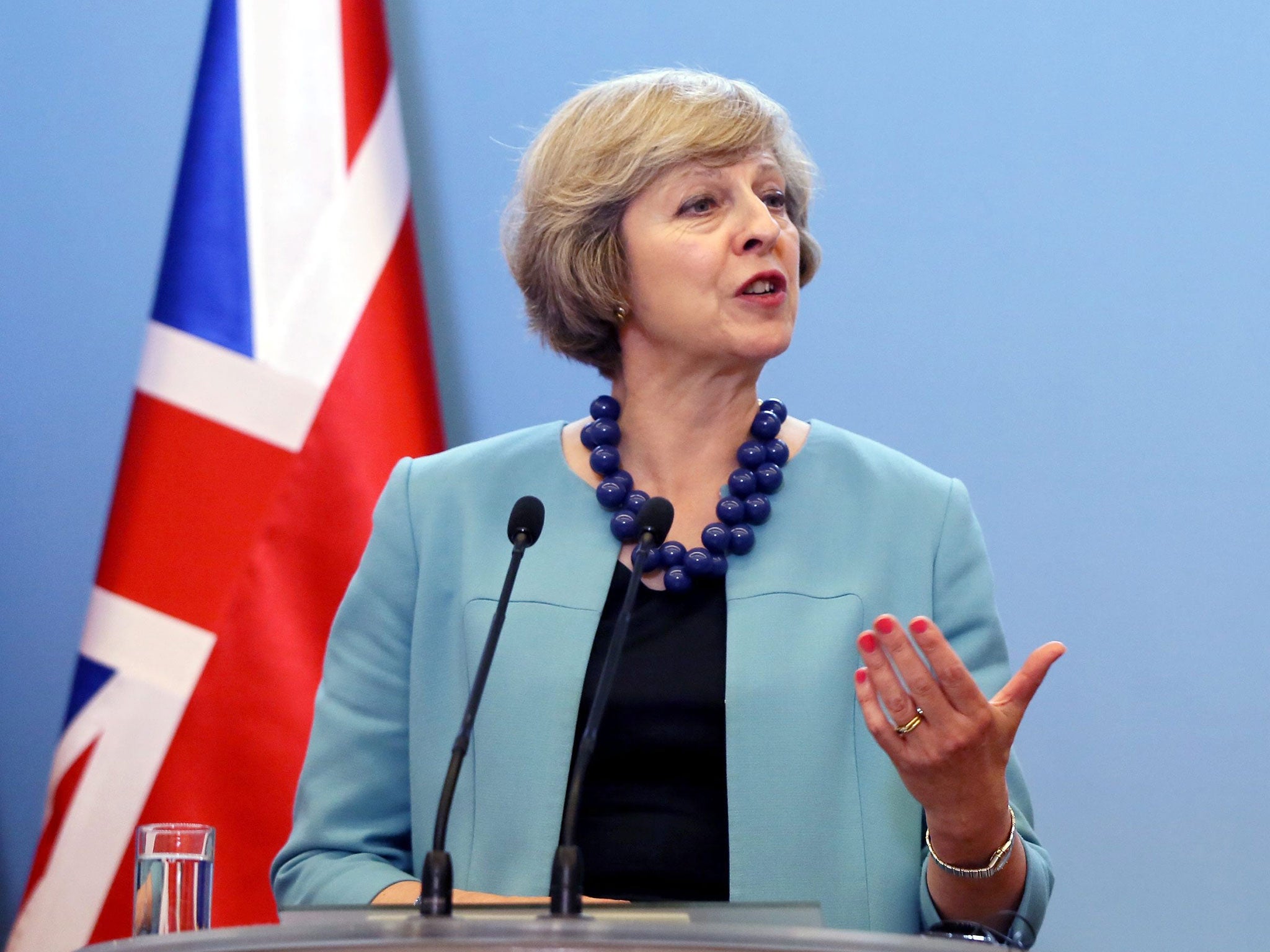Theresa May’s industrial strategy is no political gimmick – she’s facing the up to the question that every modern PM has ignored
The cosy arrangement between big business, Treasury and the unelected chumocracy is ending

It was Oliver Letwin, I’m reliably informed, who once remarked politics gives off a smell to the electorate. The punter either takes to it or recoils.
The Hinkley Point deal, delayed while Theresa May reconsiders her options, might not be off but it certainly doesn’t smell right. It would be easy to see Hinkley as a crony arrangement of the sort May never liked, but this would be to misread the message coming out of Number 10. The fate of the long-planned nuclear plant is about something altogether much more profound: May’s government is setting out its stall to solve the problem created by Margaret Thatcher’s success. And that problem is how to reinvent capitalism.
Every Prime Minister since the Iron Lady has fenced with the issue but not left much more than a scratch.
Major never got out of campaign mode, fending off his own party as much as the opposition. The calm breeze of globalisation washing over Blair’s cool Britannia, at the time a portent of stormier things to come, meant he never really had to question it. Gordon Brown couldn't keep an agenda together for more than a news cycle. And Cameron, well, he never stopped being a hostage, either to his coalition partners or, in the end, to his own party.

The new Prime Minister’s emphasis on an industrial strategy isn’t just a gimmick but a total recasting of how we should think about economic growth.
A central criticism of George Osborne’s Treasury was that it only concerned itself with the speed of growth and never questioned its quality. May is taking a markedly different tack; not only does the quality matter (her focus on closing the productivity gap, for example), which means higher skilled jobs, but also the geography of growth.
Spreading national wealth across the UK is critical to remaking capitalism. Without a functioning economy, it is impossible for places to have purpose. May’s capitalism isn’t about helping poorer places to “catch up” because they’ve been left behind, it’s about giving them back what they’ve lost – their purpose.
This rejection of ‘Osbornomics’ can also be seen as a repudiation of corporatism. Hinkley Point is a symbol of this. One might argue HS2 and even the delayed Heathrow expansion are, too.
When strong political leadership has been needed on projects of national importance, too often ministers have melted into the wallpaper. The charge of “dithering” has entered the realms of political cliché. Big business often fills that abdicated leadership role, solving the immediate problem (funding) but in the process creating a set of more intractable ones (the loss or relocation of jobs, for example). An effective industrial strategy is an answer to this absence of political leadership.
This change in economic strategy may yet claim more political victims. Lord Jim O’Neill may resign as Commercial Secretary to the Treasury because of the move (nominally, at least) away from the Northern Powerhouse. He’s clearly a talented and connected man, and would be a loss.
But running a country isn’t like running Goldman Sachs; the bottom line can’t be the only consideration. Imported talent from industry has always struggled to adapt to the ministerial grind. This isn’t their fault, more that the priorities which they are brought in on can change quickly. George Osborne envisioned a type of capitalism he felt O’Neill could help him deliver; Theresa May has other ideas.
Shifting away from a perceived corporatist cronyism, towards something we might call “clean capitalism”, means an opportunity to have a different conversation with the British people about what to expect from government when it comes to the economy.
Theresa May is reported to have told Osborne, when she sacked him, that “he had over promised and under delivered”. In a sense, that is the test of May’s attempt at remaking capitalism. Can she deliver it in a way that real people feel the change?
Too many policies under the last regime just didn’t cut through. Quantitative easing corrected bank balance sheets but very little trickled down to small businesses. A jobs miracle helped to prop up the economy, but it didn’t build many new careers or industries.
One adviser described May’s approach as “in the short-term, less gimmicks, more projects”. In the long-term, this has the makings of a generational political change. Remaking capitalism will reinvent the Conservatives as the workers’ champions.
The cosy arrangement between big business, Treasury and the unelected chumocracy is ending. Number 10’s new occupants have let it be known: this Prime Minister is for clean capitalism, not corporatism. I have a feeling the temporary stop in Hinkley is only the start of it.
Liam Booth-Smith is Chief Executive of think tank Localis
Join our commenting forum
Join thought-provoking conversations, follow other Independent readers and see their replies
Comments
Bookmark popover
Removed from bookmarks